 Have you ever tried fasting?
Have you ever tried fasting?
If you are religious, you may have done a little bit of fasting for that reason in the past.
When they hear fasting, some people think of Lent, and “giving up something” for a set number of days before Easter. Maybe chocolate, TV or Facebook.
A true fast, however, involves giving up food completely for a set amount of time, usually at least 24 hours.
There are different types of fasts: absolute fasts (no food or liquid at all), water fasts (only water is consumed), juice fasts (calories from clear liquids such as juice, clear broth, or water can be consumed), Intermittent Fasting (narrowing your eating hours during the day to a window of 6-8 hours), and other variations.
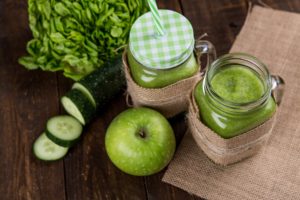 I have done several juice fasts for durations ranging from 3-10 days, for different reasons each time (sometimes to focus on prayer or an event coming up, sometimes for health reasons), and each time I’ve found it a difficult but very rewarding experience.
I have done several juice fasts for durations ranging from 3-10 days, for different reasons each time (sometimes to focus on prayer or an event coming up, sometimes for health reasons), and each time I’ve found it a difficult but very rewarding experience.
Each time I come out of a fast of any duration, I feel physically cleansed, like a deep detox has taken place. One great benefit I have noticed is that junk food is no longer appealing to me at all.
It’s like my body has been re-booted.

When my computer gets sluggish or starts acting buggy, what do I do? I reboot, and most often that resolves the issue. And re-booting the computer periodically is best for optimal function and health of the computer.
So why don’t we think about doing the same thing with our bodies? What if we could re-set our bodies to a more natural, optimal state?
WE CAN.
Most religions incorporate fasting for a period of time to focus on a spiritual purpose: in order to pray for something or someone, to prepare for a ceremony or holiday, or just to focus on God and discipline our minds and bodies.

When I began researching fasting, I was surprised by all of the health benefits that result as well. And since I am a Christian, this serves to confirm to me that all of these different practices and guidelines that God has put in place are there for our ultimate good: spiritually, mentally, and physically.
I started my research on fasting several years ago when I read the book A Hunger for God by John Piper.
I knew the spiritual benefits of fasting, and was convinced it would be beneficial for that reason.
Then I began researching the health benefits and I was blown away. The first time I tried a ten-day fast I was living in China after college, and I wanted both the spiritual and physical benefits that fasting offered.
Without a doubt, fasting is not easy. It takes commitment and determination, and not even for the reasons you may think. The longer you do it, the harder it is, but the more benefits you receive.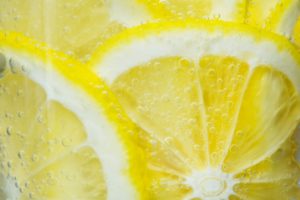
Most recently I did a Master Cleanse fast about 5 years ago for 10 days. Master Cleanse is a modified juice fast in which you take only lemon juice, maple syrup and cayenne pepper in water several times per day for 10 days. The lemon juice serves to detox the liver and other organs and alkalinize the blood, the maple syrup provides some calories and minerals to help prevent severe hunger while still bypassing the digestive system, and the cayenne pepper is a blood purifier and helps ramp up the results.
Ketosis
The Keto Diet and Ketosis are all the rage right now, but what is ketosis and is it a good thing?
Ketosis is what happens when your body literally goes into starvation mode. There are no available sugars (glucose) for energy in your body to function, so your body releases ketones into the blood which triggers the burning of body fat for energy. If you go into ketosis under the right conditions, this state can be very healing and energizing to your body in the short term.
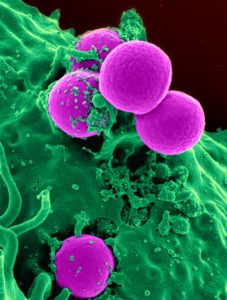 Ketosis can be beneficial on a short-term basis for plenty of reasons: bad bacteria, parasites and cancer cells all feed on glucose. If they are deprived of that energy source, they will die.
Ketosis can be beneficial on a short-term basis for plenty of reasons: bad bacteria, parasites and cancer cells all feed on glucose. If they are deprived of that energy source, they will die.
Ketones have also been shown to be an optimal fuel for the brain. Ketosis has been proven effective in treating numerous health issues, including various types of cancer, brain disorders and illnesses, as well as degenerative diseases such as diabetes and dementia.
The Keto Diet is popular right now, and a lot of people are jumping on board without really understanding how it works or the best way to go about it. Most people aren’t truly doing a keto diet at all, in fact. Since going into ketosis requires eating almost no carbs and 80% fat, 20% protein, this is not an easy diet to follow or sustain for very long. As a short-term cleanse or for the purposes of healing a major illness, I think going into ketosis is great; for a long-term diet, I think a more balanced approach is in order.
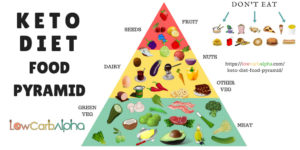
Reboot Your Body
Now that we understand a bit about why ketosis can be a good, short-term strategy for detoxing, healing, cleansing and losing weight, it’s easy to see why doing a fast for a few days that puts your body into ketosis for a short term has a similar effect.
 When I fasted I did experience a clear mind, energy, and weight loss (weight loss results will vary for the duration of the fast, but rebooting your body makes it easier to lose weight for the long term as well).
When I fasted I did experience a clear mind, energy, and weight loss (weight loss results will vary for the duration of the fast, but rebooting your body makes it easier to lose weight for the long term as well).
The hardest part was not even being hungry: especially if doing a juice fast. I was surprised how hungry I was not.
The hardest part is mental.
I wanted to eat. I smelled food or saw friends going to a restaurant and I felt sad. I just missed eating.
There were times I reached for food without even thinking, and almost ate something out of habit.
There are also some detox symptoms that made me feel sluggish. Even though I wasn’t hungry, I knew that eating would make the discomfort stop. So I had to resist the urge and push through.
Want to Try?
I’ve always believed that fasting contributes to optimal health. Ideally, I would do several short fasts (1-3 days) each year and a longer fast (10 days) every few years.
But I’m not gonna lie. Fasting is hard. It’s hard to schedule 10 days where you can’t go out to eat. It’s hard to go to work every day or work out when you aren’t eating. It’s hard to maintain strong willpower for 10 days straight.
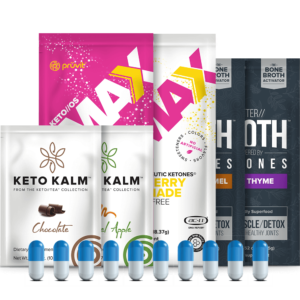 Recently I came across a few companies who offer products that claim to put people into ketosis quickly.
Recently I came across a few companies who offer products that claim to put people into ketosis quickly.
See, normally, even when on a true fast (not eating anything) it takes the body the better part of a week to go into ketosis.
With these new products, which contain ketone salts, the body is able to go into ketosis in hours or minutes, even if you are still eating.
Crazy, right?
I’ve decided to try the products from a couple of different companies to see how they work for me. I will probably do a few livestream videos on the topic to map my progress and share my results.
But first, I decided to do a Keto Reboot. It’s a short-term fast (60 hours) that puts your body into ketosis during your first night’s sleep, and keeps it there for the next 60 hours. They provide a kit that moves you through the process. The kits contain a few supplements, as well as drinks that contain ketone salts (teas and drink mixes).
Since I’ve done a true fast, I am going to compare how this stacks up. There is a Facebook group of people who all do it at the same time, and they only sell the kits for a few days time so everyone does it together. 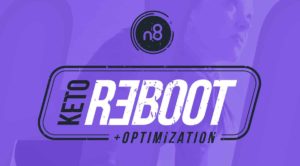
Who’s in?
If you would like to do this 60 Hour Keto Reboot with me, check out the intro video and kit here and apply to join this Facebook group.
I would love to do this with as many people as possible–we can all share our results and chart our progress and how we feel as we’re doing it!
The next keto reboot event starts the evening of July 15 (Sunday night) and goes until the morning of July 18. It last 60 hours (2 full days and 3 nights).
New to Freedom & Coffee? Start here.
Disclosure: many of the product links in this post are affiliate links, which means I will receive a small commission from any purchase. I only recommend products that I love and this is at no extra cost to you. Thank you for supporting our mission with your clicks!


